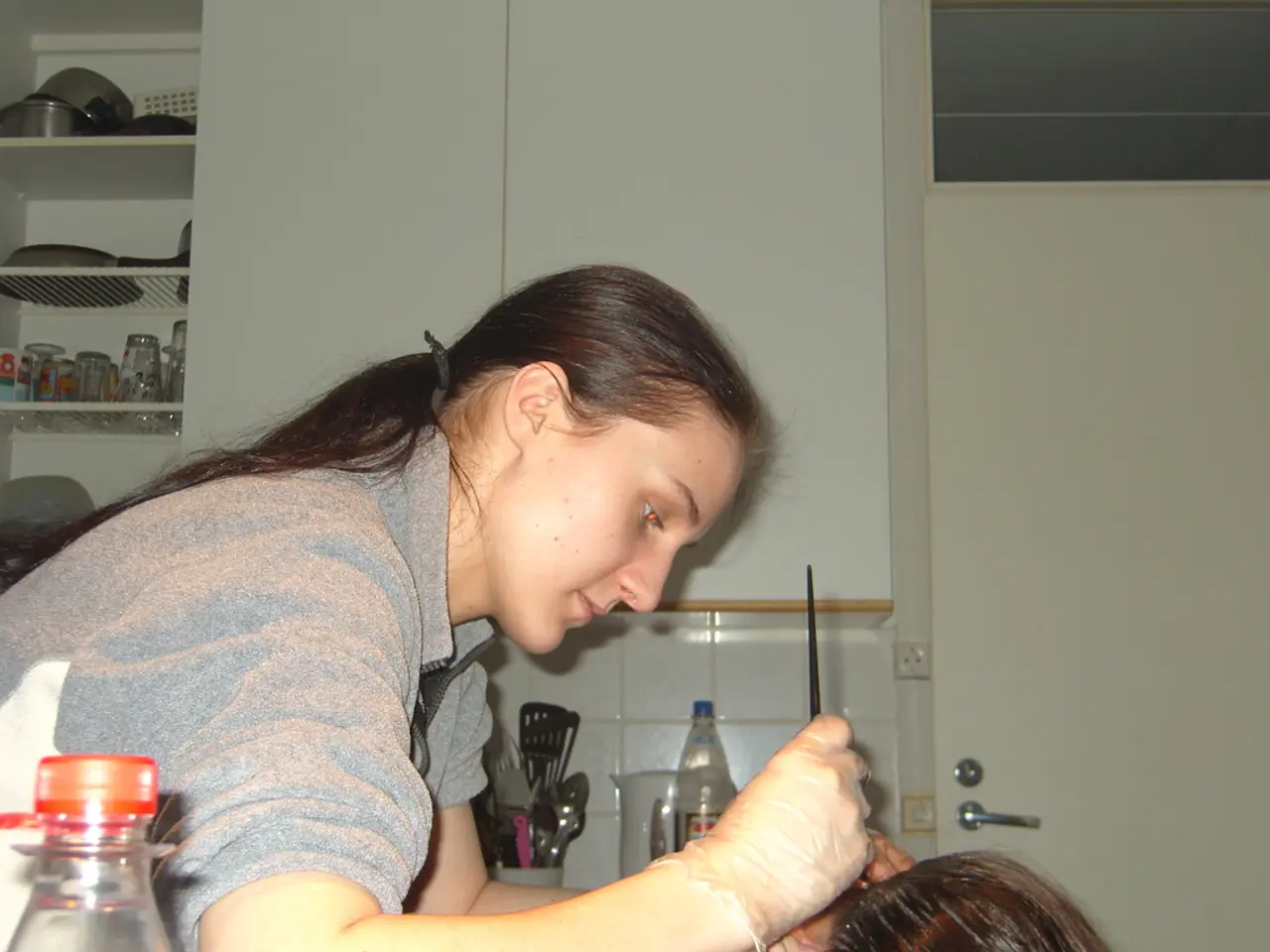Penis Shaft Hair Ingrowth: Recognizing Its Appearance and Removal Methods
Ingrown hairs on the penile shaft can be an uncomfortable and unsightly issue for some individuals. However, with the right approach, these inconveniences can be minimised and potentially avoided. Here's a comprehensive guide on preventing and treating ingrown hairs safely, as well as additional precautions to maintain skin health.
### Prevention Tips
To prevent ingrown hairs, it's essential to take careful steps before, during, and after hair removal.
1. **Trim hair carefully before removal:** Use scissors or a body trimmer designed for sensitive areas. Trimming hair dry reduces accidental cuts and prepares the area for further hair removal.
2. **Soften hair and open pores:** Soak the area in warm water or take a warm shower before hair removal. This softens the hair and opens pores, reducing irritation.
3. **Shave with care:** Apply a shaving cream or gel to lubricate the skin. Shave gently in the direction of hair growth with a clean, sharp razor to minimise irritation and the risk of hairs curling under the skin.
4. **Exfoliate gently but regularly:** Light exfoliation helps remove dead skin cells and prevent hairs from becoming trapped under the skin.
5. **Keep the skin hydrated:** Use a gentle moisturiser post-hair removal to soothe the skin and maintain its barrier function, reducing irritation and the risk of ingrown hairs.
6. **Consider hair removal alternatives:** If shaving frequently causes ingrown hairs, explore alternatives like trimming or professional hair removal methods, which might reduce irritation.
7. **Wear loose, breathable underwear:** Opt for cotton and avoid tight clothing to reduce friction and allow the skin to breathe, which helps prevent irritation and infection.
### Safe Ingrown Hair Removal and Treatment
1. **Do not pick or dig at ingrown hairs:** This can cause irritation, infection, or scarring.
2. **Use warm compresses:** Applying a warm, moist cloth to the affected area can soften the skin and encourage the hair to emerge naturally.
3. **Gentle exfoliation:** Use a mild exfoliant to help release the ingrown hair safely.
4. **Topical treatments:** If ingrown hairs become inflamed or infected (often manifesting as bumps similar to folliculitis), topical antibiotic creams may be helpful. Such creams reduce inflammation and clear any bacterial infection.
5. **Avoid harsh chemicals or abrasive scrubs:** These may worsen irritation, especially on sensitive penile skin.
6. **Seek medical advice if necessary:** If bumps persist, worsen, or show signs of infection (pain, swelling, pus), a healthcare provider can prescribe appropriate treatments like antibiotics or anti-inflammatory creams.
### Additional Precautions
1. **Maintain hygiene:** Regular gentle washing to remove sweat, oils, and dead skin reduces the risk of clogged follicles leading to ingrown hairs or infections.
2. **Avoid shaving during infections or outbreaks:** If irritation, sores, or bumps are already present, delay hair removal to prevent worsening.
Following these guidelines will help minimise ingrown hairs on the penile shaft, prevent complications such as infection, and promote skin health. If symptoms escalate or unusual bumps develop, consulting a healthcare professional is advised for proper diagnosis and treatment.
**Summary of key points:**
| Prevention and Treatment Step | Recommendations | |------------------------------------------|-----------------------------------------------------------------| | Hair trimming | Use scissors/trimmers; trim dry for safety | | Before hair removal | Soak in warm water; apply shaving cream/gel | | Shaving technique | Shave with a clean, sharp razor; follow hair growth direction | | Skin care | Exfoliate gently; keep skin moisturized | | Ingrown hair treatment | Warm compress; avoid picking; use topical antibiotics if needed | | Clothing | Wear loose cotton underwear | | Hygiene | Wash genital area regularly; avoid irritants |
- Maintain a healthy lifestyle: Regular exercise, weight management, and controlling conditions like diabetes and atopic dermatitis can contribute to overall skin health and reduce the risk of ingrown hairs.
- Consider dietary changes: Certain foods may help promote hair care and skin health, like those rich in omega-3 fatty acids, biotin, and vitamins A, C, and E.
- Stress management and mental health: Managing stress, anxiety, and depression through practices like meditation or therapy can reduce irritation, promote skin health, and help maintain the status quo of various health-and-wellness aspects, including men's health and skin care.




